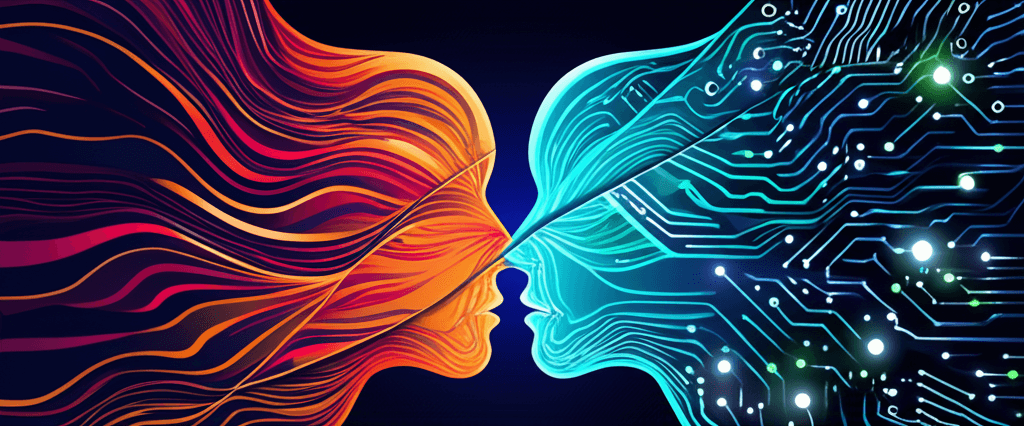Disney's AI Paradox: Pursues OpenAI Deal While Suing Rival Firms
Disney's dual strategy: Suing AI pirates while exploring an OpenAI alliance, reshaping the rules for IP in the generative era.
June 23, 2025

The Walt Disney Company, a global entertainment behemoth known for fiercely protecting its intellectual property, is reportedly in discussions with OpenAI about potential partnerships. This development introduces a complex and potentially transformative dynamic into the rapidly evolving landscape of generative artificial intelligence. While the specifics of the talks remain under wraps, the mere possibility of a collaboration between the creator of Mickey Mouse and the developer of ChatGPT and DALL-E raises profound questions about the future of content creation, copyright law, and the strategic direction of both the entertainment and AI industries. This move comes as Disney, along with other major Hollywood studios, simultaneously escalates its legal battles against AI firms for alleged copyright infringement, creating a fascinating dichotomy of conflict and potential cooperation.
The reported conversations between Disney and OpenAI signal a potential strategic pivot for the entertainment giant, which has historically been aggressive in litigating against unauthorized use of its characters and content. Recently, Disney and Universal filed a joint lawsuit against the AI image generator Midjourney, accusing the company of building its business model on "systematic copyright infringement on a massive scale."[1] The lawsuit alleges that Midjourney has unlawfully used "countless" copyrighted works, including iconic characters like Darth Vader and the Minions, to train its AI models.[1] This legal action is seen as a landmark case, representing the first time major Hollywood studios have directly sued a generative AI company over copyright claims.[1][2] The suit argues that "piracy is piracy, and the fact that it's done by an AI company does not make it any less infringing," according to Disney's chief legal officer.[3] This confrontational stance highlights the deep concerns within Hollywood regarding the existential threat that unfettered AI development poses to the value of creative intellectual property.[3] The core of the issue lies in the training process of generative AI models, which often involves scraping vast amounts of data from the internet, including copyrighted images and texts, a practice AI companies have often defended under the principle of "fair use."[3][2]
Against this backdrop of legal disputes, the prospect of a Disney-OpenAI partnership is particularly intriguing. For Disney, a collaboration could offer a way to explore the potential of generative AI within a controlled and licensed framework. The company has already established an internal task force to investigate how AI can be applied across its various divisions, from film and television to theme parks.[4][5] Disney has a long history of leveraging technology, from the MultiPlane camera in its early animated films to the AI-driven droids and personalized guest experiences in its modern theme parks.[4][6] A formal partnership with a leading AI developer like OpenAI could accelerate these efforts, potentially leading to new forms of immersive storytelling, more efficient post-production and visual effects workflows, and hyper-personalized content for its streaming services.[7] CEO Bob Iger himself has alluded to this, stating that technology in the hands of a great storyteller is "unbelievably powerful" and urging a focus on AI's ability to "make us better and tell better stories."[8] A partnership could allow Disney to train custom AI models exclusively on its own vast library of intellectual property, creating a "Disney style" generator that could streamline production without the legal and ethical quandaries of using unlicensed data.[9]
For OpenAI, a deal with Disney would be a monumental victory. The AI firm has been actively pursuing content licensing agreements with major publishers and media companies, securing partnerships with organizations like News Corp, The Atlantic, and Axel Springer.[10][11] These deals provide OpenAI with high-quality, ethically sourced training data to improve its models and lend a crucial layer of legitimacy to its operations.[12] An agreement with Disney, arguably the world's most recognizable and valuable content creator, would be the ultimate validation of this strategy. It would not only provide access to an unparalleled archive of creative works but also serve as a powerful signal to the rest of the entertainment industry that collaboration, rather than litigation, is the most productive path forward. The financial terms of OpenAI's existing deals vary, with some reportedly worth hundreds of millions of dollars, suggesting that a partnership with Disney would likely involve a very significant investment.[10] Furthermore, securing such a high-profile partner could help OpenAI mitigate the ongoing legal and regulatory scrutiny it faces regarding its data sourcing practices and the potential for its technology to displace human creative professionals.[13][14]
In conclusion, the potential alliance between Disney and OpenAI represents a critical juncture for both companies and the broader creative and technological ecosystems they inhabit. It underscores a fundamental tension in the age of generative AI: the immense potential for innovation versus the foundational principles of copyright and intellectual property. While Disney continues to fight vigorously against what it perceives as theft by some AI companies, its simultaneous exploration of a partnership with OpenAI suggests a pragmatic, dual-pronged strategy. The company appears to be hedging its bets, preparing for a future where AI is an indispensable creative tool while simultaneously working to establish legal precedents that ensure creators are compensated for their work. The outcome of these discussions and legal battles will undoubtedly have far-reaching implications, shaping the rules of engagement between content creators and AI developers for years to come and potentially rewriting the script for how entertainment is made and consumed in the 21st century.
Sources
[2]
[3]
[4]
[7]
[9]
[11]
[12]
[13]